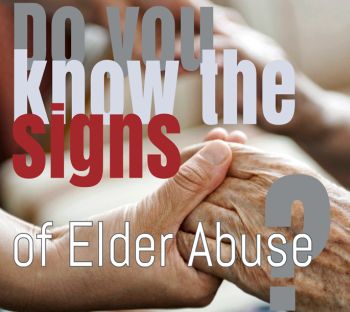
Publisher:
Bonnie King
CONTACT:
Newsroom@Salem-news.com
Advertising:
Adsales@Salem-news.com

~Truth~
~Justice~
~Peace~
TJP
Oct-06-2014 23:10

 TweetFollow @OregonNews
TweetFollow @OregonNews
Elder Abuse is On the Rise
Salem-News.comA crippling social injustice toward a silent minority- the elderly.
 Discrimination against the elderly is known as ageism. Image: blogs.rj.org |
(SALEM, Ore.) - Child abuse is heard of and seen in the media almost daily in the United States. It is something that drives people to donate money to help children in need, to have people rally together to fundraise, and the thought of a helpless child being abused is like a dagger to the heart for most people.
What is even more painful is that there is another defenseless group of humans being abused where stories of it rarely make it to the television, that people rarely think about, and that not many people think about donating money towards: our elders. Read on to learn more about this tragic occurrence.
Events of elder abuse, exploitation and neglect happen daily with hundreds of thousands of cases each year.
According to Garcia, Artigliere & Medby, a law firm that specializes in elder abuse, elder abuse is defined by “any knowing, intentional or negligent act by a caregiver of an older person that causes harm or serious risk of harm to a vulnerable adult.”
Here are some more facts to consider:
- To one single older person, the event may be a one-time only thing, or it may go on for months to years. Often times the older person is physically handicapped, mentally handicapped, vulnerable, weak, and/or unable to help themselves and must depend on others for activities of daily living.
- As with child abuse, elder abuse occurs more often by someone the older person knows rather than a complete stranger. It is frequently a family member, spouse, a certified/licensed caregiver, neighbor, solicitor, or a friend. The majority of people who abuse elders are relatives such as a daughter, son, or the spouse/partner of the older adult.
- There are many risk factors that increase the chance of abuse happening to someone; if the older person has memory problems such as dementia, physical disabilities that prevent the person from driving, walking, or even leaving their bed, an alcohol or substance abuse problem, a shared living situation, depression, loneliness, and/or a lack of a social support structure. An older person can have one or all of the risk factors combined.
Forms of Abuse
There are many types of elder abuse:
- The one that is brought to mind first is physical abuse, such as hitting, restraining, burning, kicking, pushing, and slapping. Improper medication handling that leads to harm, such as not giving the right medication, giving too much of a certain medication, or not giving medication when needed falls under this category.
- Another type is emotional/psychological abuse. A common occurrence is where someone takes something or someone that the older person cares for and uses it/them to pressure the older person into doing a certain action. The abuser relies on both verbal and non-verbal forms such as blaming, shunning, ridiculing, name-calling, harmfully criticizing, ignoring, and threatening.
- Financial exploitation is another form of abuse where the older person’s money, pension, property (be it land, jewelry, clothing, pets, antiques, etc) is illegally/unauthorized used or gained by another person. A person changing an older person’s will to include their name in it as heir falls in this category.
- More often than not the type of abuse seen or heard about is neglect. It can happen in a nursing home, in the own person’s home, or a shared living situation. An older person is deprived of basic things such as food, clothing, comfort, proper heating or cooling of the home, much needed medication, toiletries, and in some cases they are denied access to by medical professionals by the abusers. One older person may be starved if they do not give the abuser(s) what they want, and in another case the older person may lay in bed for days in their own waste, causing severe bedsores and infection, because the abuser is “sick and tired” of taking care of them.
If you know this is happening to someone, get them help!
 |
Articles for October 6, 2014 |




googlec507860f6901db00.html

Terms of Service | Privacy Policy
All comments and messages are approved by people and self promotional links or unacceptable comments are denied.
[Return to Top]
©2026 Salem-News.com. All opinions expressed in this article are those of the author and do not necessarily reflect those of Salem-News.com.